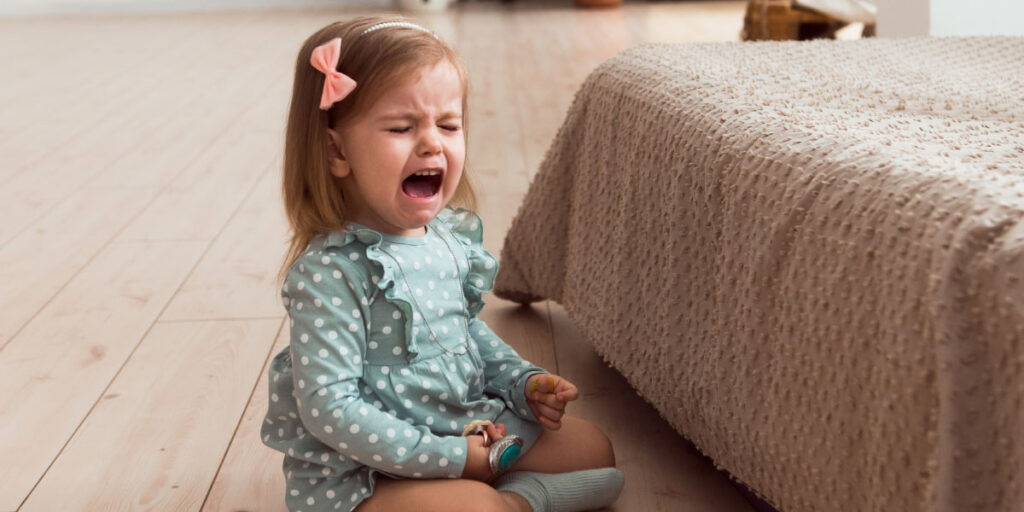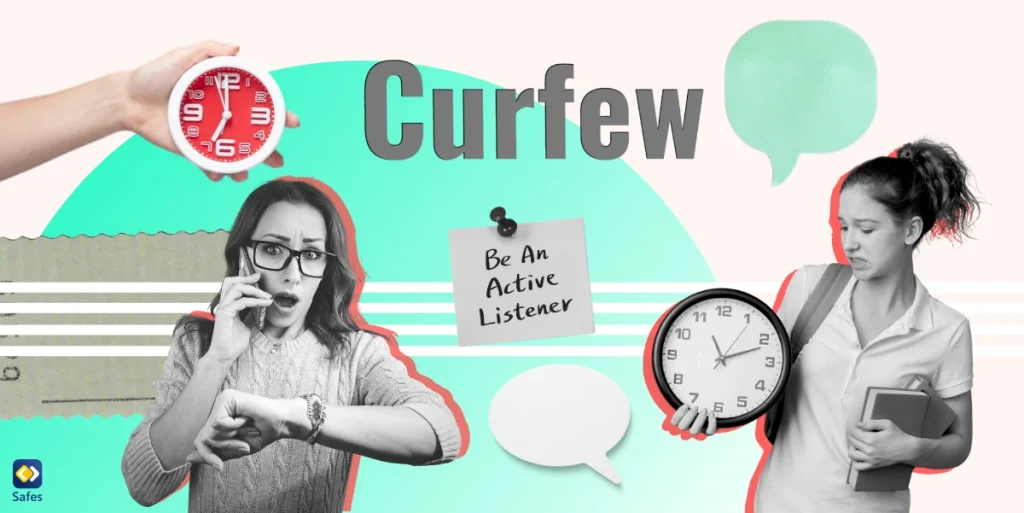Let’s be honest guys: Some of us used to be hit by our parents. And if not us, our parents used to be hit by their parents when they misbehaved. It was a common disciplinary measure back in the day.
Download and Start Your Free Trial of the Safes Parental Control App
Nowadays, everything’s different. Hitting or yelling at your child is not acceptable anymore. And that’s for the better. In this blog, we will talk about why it’s wrong to get physically aggressive with your children and will propose five ways to discipline a child without hitting them.
Why You Shouldn’t Hit or Yell at Your Child
Children can really push your buttons sometimes. They’d do things that will make you want to scream from the top of your lungs. But yelling or hitting is never the answer. Being able to manage your emotions and setting a positive example for your children are important aspects of parenting. Read about How Do Parents Influence Their Kids’ Behavior in the Age of the Internet?
There has been proof that yelling and expressing disappointment are associated with increased levels of physical and verbal aggression in children. Moreover, it can contribute to the development of anxiety symptoms in them.
Corporal punishment, on the other hand, has been shown effective to alter a child’s behavior in the short run. However, this change of behavior stems from children’s fear of physical pain rather than from understanding why their actions are wrong.
Corporal punishment has some long-term effects on children too. In its guideline called “Effective Discipline to Raise Healthy Children,” The American Academy of Pediatrics points out that hitting children increases their risk of aggression and developing mental disorders in the future.
In sum, aside from the fact that child abuse has been made illegal in the U.S. since 1974, yelling and hitting children should be avoided at any cost because of the threats they pose to children’s well-being.

How to Discipline a Child Without Yelling or Hitting
The five options below are better alternatives to spanking or any other form of physical violence:
Teach Them About Consequences
Ever heard of the domino effect? It means that all events are interconnected consequentially. In simpler words, it implies that each action we take has consequences. These consequences can be good or bad, depending on the nature of the initial action.
One of the ways that you can discipline your child effectively is to teach them about the results of their actions. Have they been breaking toys? They won’t get any new ones for a while. Do they often stay up after curfew browsing their phones? The internet will be shut off at night.
Implementing this approach will make them less likely to take it personally when something doesn’t go as they want it to.
Give Them Time-Out
A time-out refers to when a child is removed from the initial location where they’ve been misbehaving and put in an isolated spot. During a time-out, your child is not allowed to exit the designated spot and perform other activities. This time should be devoted to calming down and reflecting on their behavior.
Time-out is not supposed to take long. Consider giving your child only a few minutes of time-out. Also, be firm about it and try not to take any excuses.
Time-out is traditionally aimed at toddlers. However, there’s been a study that suggests that time-out can also be effective for teenagers of up to 18 or 19 years. Still, this is up to you to decide whether it’s suitable for your child. If you decide that it’s not, try the other options.
Ground Them
Grounding a child means depriving them of access to certain privileges for a limited period of time. This happens because they’ve acted up or done something they shouldn’t have. There are a few points that should be considered when grounding a child:
Firstly, the grounding rules and expectations must be well-defined. You should give clear directives to your child about why they’re being grounded, what’s not allowed during this time, and what you expect them to do.
Second, the severity of the punishment should be proportional to the misdeed. The punishment should fit the crime, as the saying goes. Establishing too strict rules or grounding a child too often is likely to backfire.
Third, keep it relative. Make sure that what you’re denying from your grounded child is a consequence of their actions. For example, if they’ve been getting home late, don’t tell them they can’t watch TV on weekends. That’ll make them want to go out even more.
Limit Their Access to the Internet
These days, the best way to discipline a child when they’re acting up is to cut off their access to the internet. The internet is the modern kid magnet. Kids are spending more and more time browsing social media and other online platforms every day. Aside from connecting people from all around the world, at times, social media can be more harmful than beneficial. Plus, it has become so important to kids that limiting their access for a while can really make them behave and avoid repeating the same mistakes.
Safes can be a great help in such situations. It’s a parental control app that will help you monitor your children’s online activity. It also helps you block or limit their access to any apps; and it can be installed on iOS, Android, and Windows. One of the benefits of using Safes is that you can also find out if negative influence from social media is causing them to behave poorly. We offer a free trial of Safes, so you can experience its benefits firsthand and help create a safer online environment for your child. Start your free trial today.
Encourage Good Behavior
Disciplining your child is not always about reprimanding their mistakes. It’s also about rewarding their positive behavior. This can be overlooked in day-to-day life. So, you should make an effort to remember to encourage them when they do something good. Just keep in mind that although verbal affirmation is crucial, you should also occasionally reward them with something more tangible, like a gift, or a day spent outside.
Conclusion
Sometimes, children can make you blow a fuse. But maltreatment is not a good way to “civilize” your kids. There are other ways to discipline a child without hitting them, some of which we have mentioned above. Instead of being violent towards your kids, you should try to contain your anger and try more constructive ways.
Your Child’s Online Safety Starts Here
Every parent today needs a solution to manage screen time and keep their child safe online.
Without the right tools, digital risks and excessive screen time can impact children's well-being. Safes helps parents set healthy boundaries, monitor activity, and protect kids from online dangers—all with an easy-to-use app.
Take control of your child’s digital world. Learn more about Safes or download the app to start your free trial today!




